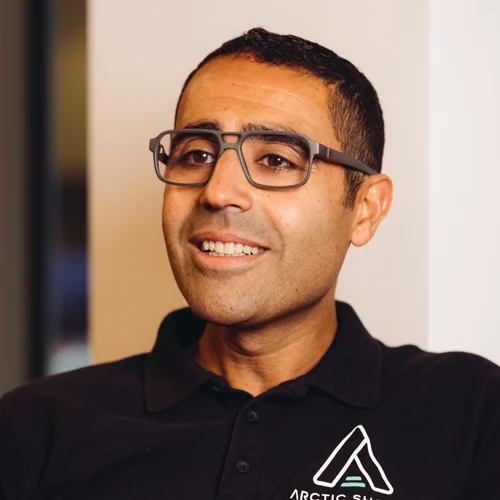Can a gamified app determine your next job?
1 August 2019

Gamification is making its way into almost every area of life, from military training to Starbucks loyalty rewards — why not the recruitment process too?

Can your ability to problem solve within an app provide a reliable indication of your suitability for a certain role? A Manchester-based company thinks so, as does its growing list of clients in sectors as diverse as technology, engineering and finance.
A radical update from traditional psychometric tests, Arctic Shores uses behavioural-based assessments to measure traits and preferences during the initial stages of recruitment. The aim is to give employers a better — and crucially, more objective — idea of which candidates might suit their organisation.
The goal: to make the recruitment process a more efficient and positive experience for recruiters and candidates alike. But is it friend or foe for those looking for their next big challenge? We asked CTO and Co-founder Safe Hammad to explain more.

Can you save time and money with data?
The recruitment process can often be difficult, time-consuming and prone to bias, whether you’re looking for a role or trying to find the right individual to fill one. The solution, for Safe Hammad at least, is to introduce more data to every step of the process.
“Data makes the selection process more engaging, objective and more importantly, free from bias.” says Safe. Behavioural-based psychometric assessments “can be used to work out whether a candidate is suitable for a job — in an objective way.”
The result is a candidate shortlist, without multiple interviews, saving valuable time and money for the candidates and the company. Forbes recently had the average cost of finding and hiring a new employee at £200,000.

Can an app augment your CV and eliminate bias in the process?
Bias remains a huge issue in recruitment. It can significantly impact candidates’ ability to win roles or even get to interview stage. One piece of research found that even the sound of someone’s voice can indicate socioeconomic status or race, and that these factors can negatively impact a candidate’s chances.
A study looking at American symphony musicians found that when screens were used to protect the identity of players, the likelihood of women advancing to the next round of auditions increased by 50%.
CVs are often a strong “predictor of your upbringing and even where you grew up…” Safe says. “What we’re trying to do is introduce something that’s completely objective. Before we look at your background or your CV, let’s understand whether you have the potential to be good in that role.”

What exactly will you be expected to do?
Gamification is everywhere. For the military, the benefits of using it to both recruit and train personnel are more obvious — sniper skills and strategic thinking from a shoot-’em-up translate remarkably well on the actual battlefield. But how can you accurately measure your ability to perform in a more sedate office setting or factory from an app?
The answer is in assessing underlying behaviours — rather than being asked if you’re a team player, you’re put directly into scenarios that will measure if you are or not.
One of Arctic Shores’ apps, Skyrise City, combines a number of behavioural assessments — patience challenges that ask you to concentrate on unlocking a door, for example, or a task that asks you to inflate balloons without bursting them. The point is not to ‘perform’ as such — what’s being measured is how you approach the task full stop.
“The data gathered through the assessment can also be used further down the line, for instance in employee development,” says Safe. “If someone is hired, you can see what their strengths and weaknesses are, and then formulate a plan to help them settle into the role and work on a development plan.”
For those who aren’t successful, there’s the chance for constructive feedback. “It’s saying: no, you didn’t get the job this time, but here’s some valuable insights that will hopefully help you in your journey looking for another role.”

Is this the future of unbiased hiring?
Anything that can help encourage diversity in the workplace should of course be welcomed — especially in the tech sector, which is notoriously unbalanced when it comes to gender. But are apps and task-based challenges a real solution?
For Safe, the future of hiring is positive, with behaviour-based assessments part of that picture. He points to the increased number of employers now introducing name-blind CVs, or who won’t look at where somebody went to university. Unbiased, objective data is now a far more prominent feature in HR processes.
“Whether that’s data from behaviour-based assessments like ours or data from a standardised interview, we want companies to be able to use that confidently, to allow them to choose and hire the best people into their roles — without bias.”
As for candidates — is there a way to hack such assessment, or to practise? Safe says no; playing Call of Duty for eight hours before your interview probably isn’t going to help!
“What the tests require is that you apply yourself,” he says. “It’s all about the decisions you make and how you apply them.”



